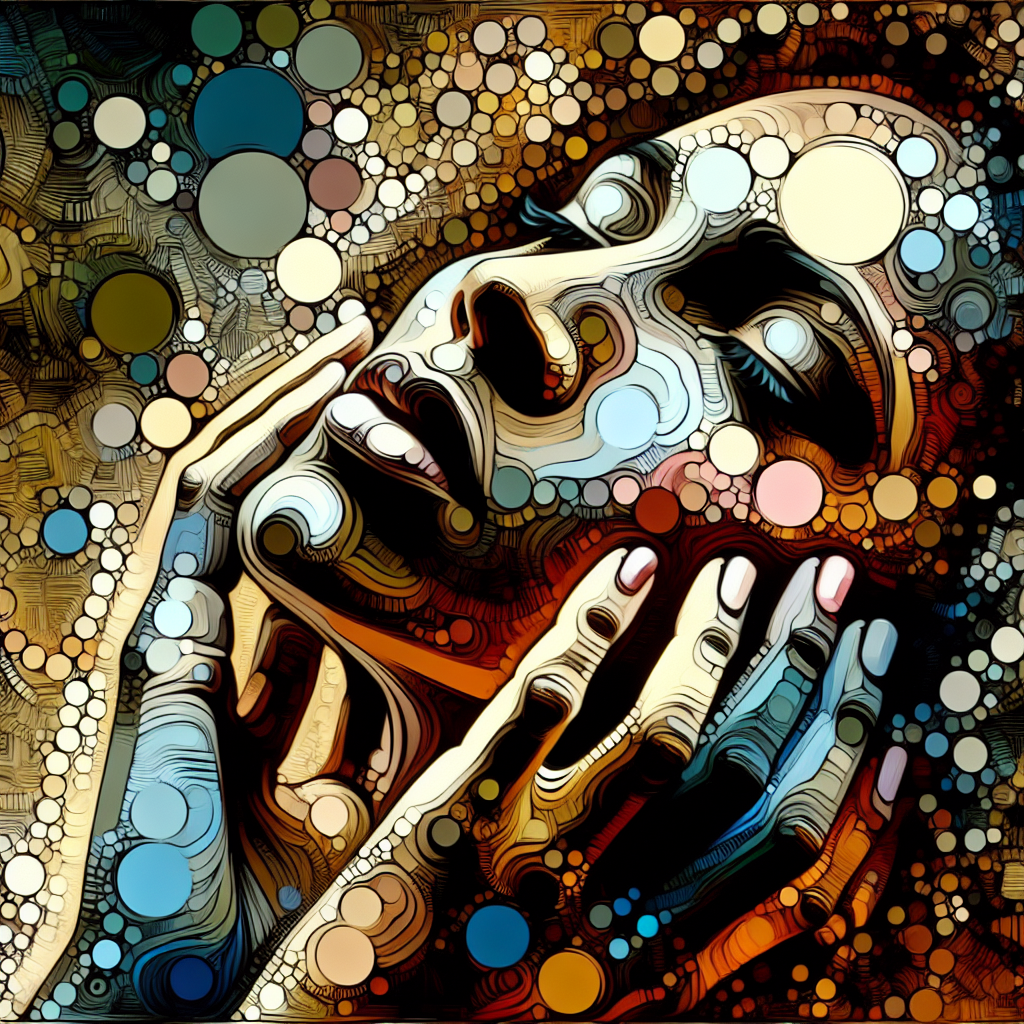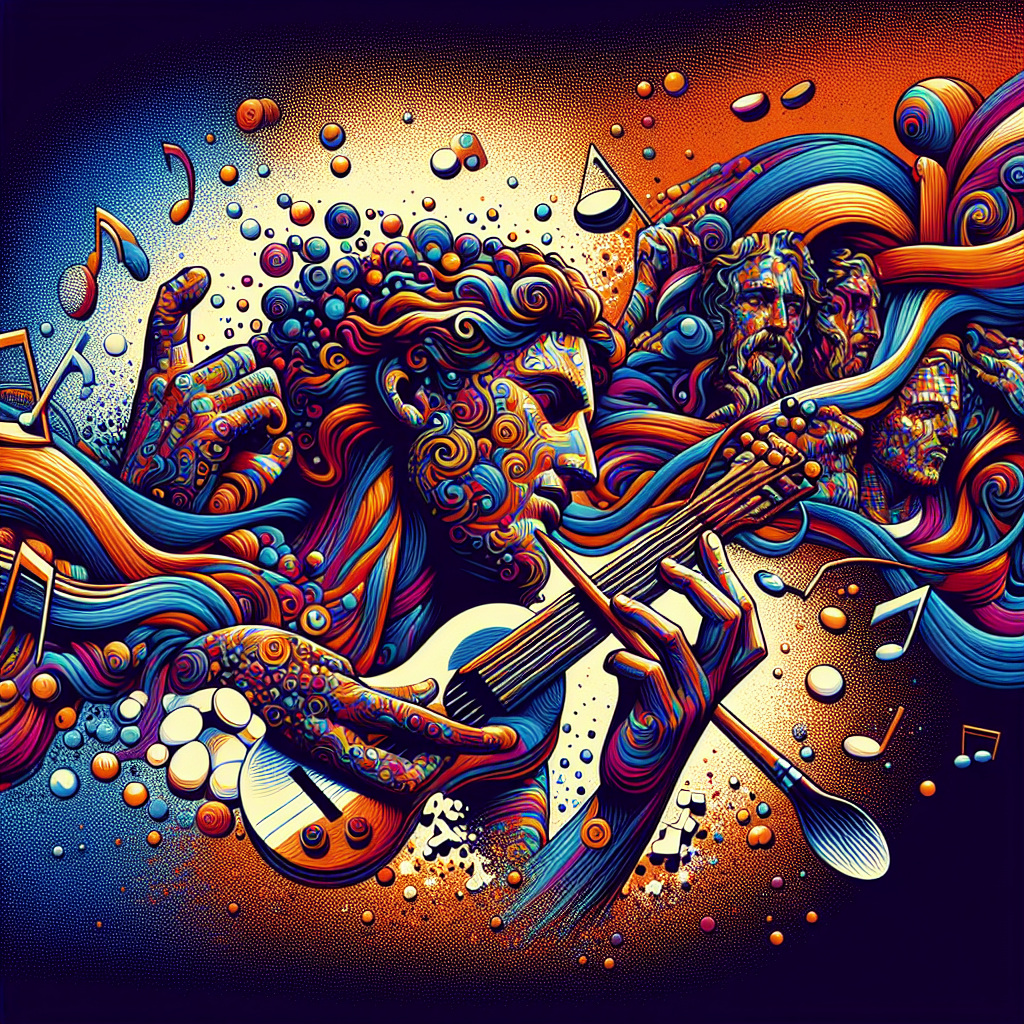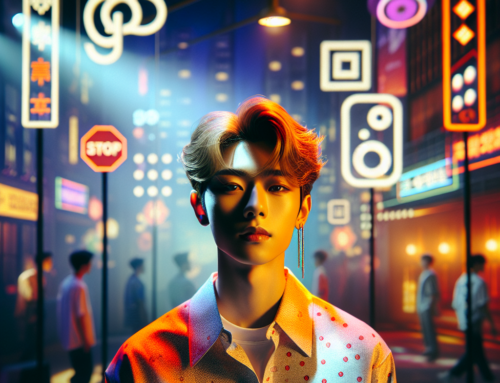-
Table of Contents
“Neo-Soul: Where Timeless Emotion Meets Modern Groove.”
Introduction
Neo-Soul: The New Wave of Soulful Expression
Emerging in the late 1990s as a fresh and innovative genre, Neo-Soul represents a dynamic fusion of classic soul with contemporary influences, creating a rich tapestry of sound that resonates with authenticity and emotional depth. Rooted in the traditions of 1960s and 1970s soul music, Neo-Soul artists infuse their work with elements of jazz, funk, hip-hop, and R&B, crafting a genre that is both timeless and modern. This movement is characterized by its emphasis on live instrumentation, introspective lyrics, and a commitment to artistic integrity, offering a platform for artists to explore themes of love, identity, and social consciousness. With pioneers like Erykah Badu, D’Angelo, and Lauryn Hill leading the charge, Neo-Soul has carved out a unique space in the musical landscape, inspiring a new generation of musicians and listeners alike to embrace the soulful expression of the human experience.
Evolution Of Neo-Soul: Tracing Its Roots And Influences
Neo-soul, a genre that emerged in the late 1990s, represents a fresh wave of soulful expression that intricately weaves together elements of traditional soul with contemporary influences. To understand the evolution of neo-soul, it is essential to trace its roots and examine the myriad influences that have shaped its development. This genre, while rooted in the rich history of soul music, distinguishes itself through its innovative blend of various musical styles, including jazz, funk, hip-hop, and R&B.
The origins of neo-soul can be traced back to the classic soul music of the 1960s and 1970s, a period marked by the profound impact of artists like Marvin Gaye, Aretha Franklin, and Stevie Wonder. These pioneers laid the groundwork with their emotive vocal delivery and socially conscious lyrics, elements that continue to resonate within neo-soul. As the music industry evolved, the 1980s and early 1990s saw the rise of R&B and hip-hop, genres that would later play a significant role in shaping neo-soul. Artists like Prince and Michael Jackson introduced a more polished production style, while hip-hop brought a raw, rhythmic edge that would become integral to neo-soul’s sound.
The term “neo-soul” was popularized in the late 1990s by music industry executive Kedar Massenburg, who sought to describe a new wave of artists who were reviving the essence of classic soul while infusing it with modern sensibilities. This period saw the emergence of influential artists such as Erykah Badu, D’Angelo, and Lauryn Hill, who became synonymous with the genre. Their music was characterized by a return to organic instrumentation, introspective lyrics, and a focus on authenticity, setting them apart from the heavily synthesized sounds dominating mainstream R&B at the time.
Erykah Badu’s debut album, “Baduizm,” released in 1997, is often cited as a seminal work in the neo-soul movement. Her unique blend of jazz, soul, and hip-hop, coupled with her distinctive voice and thought-provoking lyrics, captured the essence of neo-soul and garnered widespread acclaim. Similarly, D’Angelo’s “Brown Sugar” and Lauryn Hill’s “The Miseducation of Lauryn Hill” further solidified the genre’s place in the musical landscape, each offering a fresh take on soul music that resonated with a new generation of listeners.
As neo-soul continued to evolve, it began to incorporate a broader range of influences, drawing from genres such as funk, gospel, and even electronic music. This evolution is evident in the works of artists like Jill Scott, Maxwell, and Alicia Keys, who have each contributed to the genre’s rich tapestry with their unique interpretations. The genre’s adaptability and willingness to embrace diverse influences have allowed it to remain relevant and continue to grow.
In recent years, neo-soul has seen a resurgence, with a new wave of artists like Anderson .Paak, H.E.R., and Jorja Smith bringing fresh perspectives to the genre. These artists, while paying homage to the pioneers of neo-soul, are pushing the boundaries further by experimenting with new sounds and themes. This ongoing evolution underscores neo-soul’s enduring appeal and its capacity to serve as a platform for soulful expression in an ever-changing musical landscape. Through its rich history and diverse influences, neo-soul continues to captivate audiences, offering a timeless yet contemporary sound that speaks to the heart and soul.
Key Artists Shaping The Neo-Soul Movement
Neo-soul, a genre that emerged in the late 1990s, represents a fusion of contemporary R&B, soul, jazz, and hip-hop, creating a rich tapestry of sound that resonates with a diverse audience. This genre, while rooted in the traditional elements of soul music, pushes boundaries by incorporating modern influences and addressing contemporary themes. As neo-soul continues to evolve, several key artists have been instrumental in shaping its direction and expanding its reach.
Erykah Badu, often referred to as the “Queen of Neo-Soul,” is a pivotal figure in the genre. Her debut album, “Baduizm,” released in 1997, set the stage for what neo-soul could become. With her distinctive voice and eclectic style, Badu blends elements of jazz, soul, and hip-hop, creating a sound that is both innovative and deeply rooted in tradition. Her lyrical content often explores themes of love, identity, and social consciousness, resonating with listeners who seek depth and authenticity in music.
Similarly, D’Angelo has played a significant role in defining the neo-soul movement. His 1995 debut album, “Brown Sugar,” introduced audiences to a sound that was both nostalgic and forward-thinking. D’Angelo’s music is characterized by its smooth melodies, intricate harmonies, and a deep appreciation for the funk and soul music of the past. His ability to seamlessly blend these elements has earned him critical acclaim and a dedicated fan base. His follow-up album, “Voodoo,” further solidified his status as a neo-soul pioneer, with its experimental approach and raw, emotive delivery.
Another artist who has significantly contributed to the neo-soul landscape is Lauryn Hill. Her work with The Fugees and her solo album, “The Miseducation of Lauryn Hill,” have left an indelible mark on the genre. Hill’s music is a testament to her versatility as an artist, effortlessly combining elements of soul, reggae, and hip-hop. Her introspective lyrics and powerful vocal performances have made her a beloved figure in the neo-soul community. Hill’s influence extends beyond her music, as she has become a symbol of empowerment and authenticity for many aspiring artists.
In addition to these trailblazers, newer artists like Jill Scott and Maxwell have also made significant contributions to the neo-soul movement. Jill Scott’s debut album, “Who Is Jill Scott? Words and Sounds Vol. 1,” introduced listeners to her unique blend of spoken word poetry and soulful melodies. Her ability to convey emotion through her music has earned her a loyal following and critical acclaim. Maxwell, on the other hand, is known for his smooth falsetto and sophisticated sound. His debut album, “Maxwell’s Urban Hang Suite,” is considered a classic in the genre, showcasing his ability to blend traditional soul with contemporary influences.
As neo-soul continues to evolve, these artists, along with many others, have played a crucial role in shaping its direction. Their willingness to experiment with different sounds and address complex themes has allowed the genre to remain relevant and resonate with a wide audience. Through their innovative approaches and dedication to their craft, these key figures have ensured that neo-soul remains a vital and dynamic form of musical expression. As the genre continues to grow, it will undoubtedly be shaped by both its pioneers and the new voices that emerge, each contributing to the rich tapestry of neo-soul.
The Impact Of Neo-Soul On Modern Music Genres

Neo-soul, a genre that emerged in the late 1990s, has significantly influenced modern music genres, leaving an indelible mark on the musical landscape. This genre, which blends elements of soul, R&B, jazz, and hip-hop, has not only revitalized traditional soul music but also inspired a new generation of artists across various musical styles. As neo-soul continues to evolve, its impact on contemporary music becomes increasingly evident, shaping the sound and direction of numerous genres.
One of the most notable impacts of neo-soul is its role in the resurgence of soul music. By infusing classic soul with modern elements, neo-soul artists have breathed new life into a genre that had been overshadowed by the rise of pop and hip-hop. This revival has encouraged a renewed appreciation for the rich, emotive qualities of soul music, prompting both established and emerging artists to explore its depths. Consequently, neo-soul has helped bridge the gap between past and present, creating a seamless connection between the timeless appeal of traditional soul and the innovative spirit of contemporary music.
Moreover, neo-soul’s influence extends beyond the realm of soul music, permeating various other genres. In the world of R&B, for instance, neo-soul has inspired a shift towards more organic, instrumentally rich soundscapes. Artists in this genre have increasingly embraced live instrumentation and complex arrangements, drawing from the neo-soul playbook to create music that is both sonically and emotionally engaging. This trend has led to a more diverse and dynamic R&B scene, where artists are encouraged to experiment with different sounds and styles.
In addition to R&B, neo-soul has also left its mark on hip-hop. The genre’s emphasis on introspective lyrics and authentic expression has resonated with hip-hop artists seeking to infuse their music with greater depth and substance. As a result, many hip-hop musicians have incorporated neo-soul elements into their work, blending soulful melodies and thoughtful lyricism with traditional hip-hop beats. This fusion has given rise to a subgenre often referred to as “conscious hip-hop,” which prioritizes meaningful storytelling and social commentary over commercial appeal.
Furthermore, neo-soul’s impact can be seen in the burgeoning genre of alternative music. As artists in this space strive to push the boundaries of conventional music, they have increasingly turned to neo-soul for inspiration. The genre’s willingness to experiment with different sounds and textures has encouraged alternative musicians to explore new sonic territories, resulting in a more eclectic and innovative musical landscape. This cross-pollination of ideas has led to the emergence of unique hybrid genres that defy easy categorization, further blurring the lines between traditional musical styles.
In conclusion, neo-soul has had a profound impact on modern music genres, influencing the sound and direction of contemporary music in myriad ways. By revitalizing soul music and inspiring artists across various genres, neo-soul has fostered a spirit of innovation and creativity that continues to shape the musical landscape. As the genre evolves and adapts to new influences, its legacy will undoubtedly endure, leaving an indelible mark on the world of music for years to come. Through its fusion of past and present, neo-soul has not only redefined the boundaries of soul music but also paved the way for a new wave of soulful expression that resonates with audiences worldwide.
Neo-Soul’s Role In Cultural And Social Movements
Neo-soul, a genre that emerged in the late 1990s, has become a significant force in the music industry, offering a fresh and innovative take on traditional soul music. This genre, characterized by its blend of soul, jazz, R&B, and hip-hop, has not only redefined musical boundaries but also played a pivotal role in cultural and social movements. As artists within this genre continue to push the envelope, neo-soul has become a powerful medium for expressing complex social issues and cultural identities.
One of the defining features of neo-soul is its ability to address social and cultural themes with depth and nuance. Artists such as Erykah Badu, D’Angelo, and Lauryn Hill have used their music to explore topics such as racial identity, gender equality, and social justice. Through their lyrics and performances, these artists have provided a voice for marginalized communities, offering a platform for dialogue and reflection. This has allowed neo-soul to resonate with audiences who seek music that not only entertains but also challenges societal norms and encourages critical thinking.
Moreover, neo-soul’s role in cultural and social movements is further amplified by its emphasis on authenticity and individuality. Unlike mainstream pop music, which often prioritizes commercial appeal, neo-soul artists are celebrated for their unique sound and personal expression. This authenticity has fostered a sense of community among listeners who value music that reflects their own experiences and struggles. As a result, neo-soul has become a soundtrack for movements advocating for change, providing both inspiration and solidarity for those involved.
In addition to its lyrical content, the genre’s musical composition also contributes to its impact on cultural and social movements. Neo-soul’s fusion of various musical styles creates a rich tapestry of sound that reflects the diversity of the communities it represents. This blending of genres not only highlights the interconnectedness of different cultural influences but also challenges the notion of rigid musical categories. By doing so, neo-soul encourages a more inclusive understanding of music and culture, promoting a message of unity and acceptance.
Furthermore, the rise of digital platforms has allowed neo-soul to reach a global audience, expanding its influence beyond its origins. Social media and streaming services have enabled artists to connect with fans worldwide, sharing their messages and music with a diverse and engaged audience. This global reach has facilitated cross-cultural exchanges and collaborations, further enriching the genre and its role in cultural and social movements. As neo-soul continues to evolve, it remains a dynamic and influential force in the music industry, shaping conversations around identity, equality, and justice.
In conclusion, neo-soul’s role in cultural and social movements is multifaceted and profound. Through its emphasis on authenticity, diversity, and social consciousness, the genre has become a powerful tool for expression and change. As artists continue to explore new themes and sounds, neo-soul will undoubtedly remain at the forefront of cultural and social discourse, inspiring future generations to engage with music that challenges, empowers, and unites.
Exploring The Unique Soundscapes Of Neo-Soul Music
Neo-soul, a genre that emerged in the late 1990s, represents a fresh and innovative wave of soulful expression that has captivated audiences worldwide. This genre, while rooted in the traditional elements of soul music, distinguishes itself through its eclectic blend of influences, including jazz, funk, hip-hop, and R&B. As a result, neo-soul offers a unique soundscape that resonates with listeners seeking both nostalgia and modernity. The genre’s evolution can be attributed to artists who have pushed the boundaries of conventional soul music, infusing it with contemporary sounds and themes that reflect the complexities of modern life.
One of the defining characteristics of neo-soul is its emphasis on authenticity and emotional depth. Artists within this genre often prioritize lyrical content that explores personal and social issues, offering a raw and honest perspective that connects deeply with audiences. This focus on genuine expression is complemented by the genre’s musical diversity, which allows for a wide range of sonic experimentation. For instance, the incorporation of jazz elements, such as complex chord progressions and improvisation, adds a layer of sophistication to the music, while the influence of hip-hop brings a rhythmic and lyrical edge that appeals to a younger generation.
Moreover, neo-soul’s unique soundscapes are shaped by its artists’ willingness to draw from a broad spectrum of musical traditions. This genre is not confined to a single style or formula; instead, it thrives on the fusion of different sounds and influences. Erykah Badu, often hailed as the “Queen of Neo-Soul,” exemplifies this approach with her ability to blend traditional soul with elements of hip-hop and jazz, creating a sound that is both timeless and contemporary. Similarly, artists like D’Angelo and Lauryn Hill have contributed to the genre’s rich tapestry by incorporating elements of funk and reggae, respectively, further expanding the boundaries of what neo-soul can encompass.
In addition to its musical diversity, neo-soul is characterized by its commitment to innovation and experimentation. This is evident in the way artists approach production and instrumentation, often opting for live instrumentation over digital production to create a more organic and authentic sound. This preference for live music not only pays homage to the roots of soul but also allows for greater spontaneity and creativity in the recording process. Furthermore, the use of unconventional instruments and production techniques adds to the genre’s distinctiveness, offering listeners a fresh auditory experience with each new release.
As neo-soul continues to evolve, it remains a powerful vehicle for cultural expression and social commentary. The genre’s ability to address contemporary issues, such as identity, love, and social justice, through its music ensures its relevance in today’s ever-changing musical landscape. Artists like Solange and Anderson .Paak have carried the torch of neo-soul into the 21st century, using their platforms to challenge societal norms and inspire change through their art.
In conclusion, neo-soul represents a dynamic and evolving genre that continues to push the boundaries of musical expression. Its unique soundscapes, characterized by a blend of diverse influences and a commitment to authenticity, offer listeners a rich and immersive experience. As the genre grows and adapts to the changing cultural landscape, it remains a testament to the enduring power of soulful music to connect, inspire, and transform.
Q&A
1. **What is Neo-Soul?**
Neo-Soul is a genre of music that emerged in the 1990s, blending elements of traditional soul with contemporary R&B, jazz, hip-hop, and funk. It is known for its rich, emotive vocals and introspective lyrics.
2. **Who are some pioneering artists of Neo-Soul?**
Pioneering artists of Neo-Soul include Erykah Badu, D’Angelo, Lauryn Hill, and Maxwell, who helped define the genre with their innovative sounds and soulful expressions.
3. **How does Neo-Soul differ from traditional soul music?**
While traditional soul music focuses on raw emotion and powerful vocal performances, Neo-Soul incorporates modern production techniques, diverse musical influences, and often features more personal and socially conscious lyrics.
4. **What role does Neo-Soul play in contemporary music?**
Neo-Soul has influenced a wide range of contemporary music genres, inspiring artists to explore deeper lyrical content and experiment with blending different musical styles, thus broadening the scope of modern R&B and soul.
5. **What are some notable albums in the Neo-Soul genre?**
Notable Neo-Soul albums include “Baduizm” by Erykah Badu, “Brown Sugar” by D’Angelo, “The Miseducation of Lauryn Hill” by Lauryn Hill, and “Urban Hang Suite” by Maxwell, each contributing significantly to the genre’s development.
Conclusion
Neo-Soul, emerging in the late 1990s, represents a transformative wave in the realm of soulful music, blending elements of classic soul with contemporary R&B, jazz, hip-hop, and funk. This genre has carved out a unique space for artists to explore themes of love, identity, and social consciousness with a depth and authenticity that resonates with diverse audiences. Pioneers like Erykah Badu, D’Angelo, and Lauryn Hill have set the stage for a new generation of musicians who continue to push the boundaries of musical expression. Neo-Soul’s emphasis on lyrical introspection and rich, organic soundscapes has not only revitalized interest in soul music but also fostered a community that values artistic integrity and emotional honesty. As it evolves, Neo-Soul remains a powerful vehicle for cultural expression and innovation, reflecting the complexities of modern life while honoring the legacy of its soulful predecessors.




